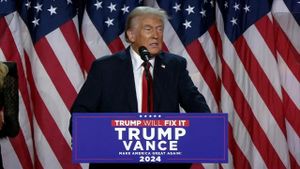The payment and pharmaceutical industries are currently facing unprecedented scrutiny as regulators ramp up their investigations. Both sectors have been under the microscope, with government agencies aiming to address potential anti-competitive practices and promote fair market dynamics.
One significant case involves Visa, which disclosed to its investors on November 13, 2024, about the European Commission's (EC) preliminary investigation concerning the fees it imposes on retailers. According to Visa's annual report, the EC officially informed the company on August 30, 2024, about this inquiry. "Visa is cooperating with the EC in connection with the investigation," the report states. This scrutiny follows another investigation completed by the EC, which looked at Visa's incentive agreements with clients over the last two years.
The growing concern among retailers relates to Visa and Mastercard’s so-called “scheme fees,” which are additional charges levied for using card services. Retailers have voiced discontent over what they perceive as opaque fee structures and the dominance of these payment giants. An EU document, cited by Reuters, confirmed the investigation's scope when the EC sent out questionnaires to retailers and payment service providers to gather insights about the fees associated with Visa and Mastercard.
These fees can create significant financial burdens for merchants and are seen as contributing to anti-competitive behavior within the market. If found guilty, Visa could face penalties amounting to as much as 10% of its annual revenue, which adds up to considerable fines. Adding to the legal challenges, Visa is currently embroiled in its own class-action lawsuit within the U.S. related to its debit network, accused of imposing anti-competitive behaviors against retailers.
This legal tempest doesn't stop there. The U.S. Department of Justice (DOJ) also filed charges against Visa back in September, claiming the company has engaged in exclusionary practices to maintain its dominant position, effectively stifling competition and driving fees for both merchants and consumers. Visa's General Counsel, Julie Rottenberg, argued against the DOJ's claims, describing the lawsuit as “meritless” and asserting there are many competitors actively entering the debit market.
Meanwhile, the pharmaceutical industry is also caught up in its own antitrust battles. Recently, Boehringer’s legal team pushed back against allegations tied to its inhalers, asserting the antitrust suit lacks merits and should be dismissed outright. The litigation focuses on accusations against the pharmaceutical giant related to anti-competitive practices involving its inhaler products.
The suit claims Boehringer has engaged in practices aimed at stifling competition within the market for asthma inhalers, causing price hikes. Boehringer’s representatives dismissed the allegations, indicating these claims are founded on unsubstantiated assertions rather than solid evidence. They maintain the company fully complies with the laws governing competitive practice.
These antitrust investigations occurring simultaneously within the banking and healthcare sectors signal increased watchfulness from regulators worldwide. The intense scrutiny has led many to speculate about the long-term ramifications this might have on how these industries operate. The outlook suggests companies might need to reassess their pricing structures and competitive practices to avoid legal repercussions.
For consumers, the stakes are high. Both cases reflect broader trends observed across industries wherein regulatory bodies are taking bolder steps to protect market competition, ensuring fair pricing and access. Retailers are demanding fair treatment, which can benefit consumers who often bear the costs of these fees—potentially leading to higher prices at checkout.
The heightened focus on transparency and fairness is echoed by consumer advocates who urge compensation mechanisms to assist those negatively affected by the high fees imposed by dominant payment processors.
While both Visa and Boehringer fight against the claims and continue to maintain their practices, the question remains—what does the future hold for companies operating at the top of their games when regulatory bodies are tightening their grip? Only time will tell as these investigations evolve and new developments emerge.
With this backdrop of legal turmoil, it’s clear both the payment and pharmaceutical industries are entering uncertain waters, where adhering to fair trade practices might not just be recommended but necessary to stave off more severe consequences.



